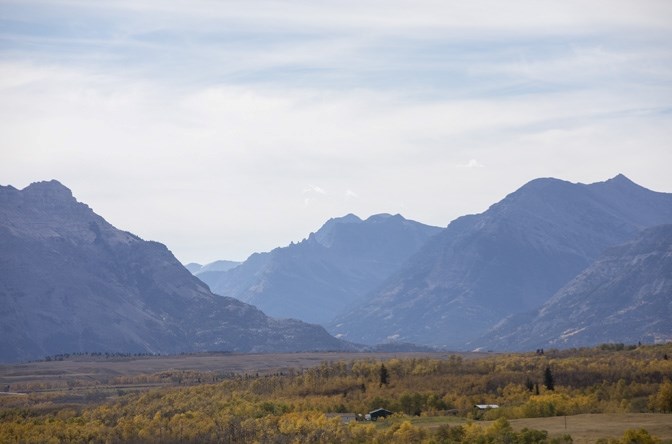Avid boaters may have to change up their holiday plans if Waterton was on the docket.
Effective March 16, the Environment Canada issued a ban on all motorized boats and boats hauled by trailer from Waterton Lakes National Park, loacated in southern Alberta. The ban came in response to the discovery of zebra mussel larvae in a Montana lake 30 kilometres southwest of the park.
“The reason is to protect the lake, if the mussel was to get in there it would be devastating to a very pristine, unique water body in Alberta,” said Foothills MP John Barlow. “This is a very invasive species and devastating to any water body it gets into, lakes or rivers.”
In 2016, there were 500 permits issued for boaters out of 500,000 annual visitors, he said. Though the numbers seem low, they could still have an impact, he said.
“Some people will not be happy with that decision, but I think the vast majority of Albertans and Canadians will understand this is something that had to be done,” said Barlow.
He said Parks Canada and Environment Canada worked quickly to put the ban on boats in place. Tourist boats operating in Waterton, such as The International, which take visitors around the park are permitted because they never leave Waterton Lake, he said.
Canoes and kayaks are also still allowed on the water, as the zebra mussel tends to be transported by trailers, motors and fuel tanks, he said.
Barlow said it was a difficult, but necessary decision.
“We must protect that lake,” he said. “It’s the headwaters for the South Saskatchewan Water Basin, it’s pristine, it has some very unique fish habitat and plants and animals in there.”
It supplies water to the Old Man River and if infected with the zebra mussel could eventually have an adverse effect on the Highwood and Sheep Rivers downstream as well, he said.
The zebra mussel also poses concerns for infrastructure, he said.
“The water pipelines, dams, it clogs them, blocks them, it grows that quickly,” said Barlow. “It’s just such an invasive species. It just takes over.”
At this time, without any known way to eradicate the zebra mussel, the ban will likely be permanent, he said.
According to the United States Congress, efforts to control the mussel in different parts of the United States, like Washington and Oregon, have cost well over $1 billion per year, he said.
In Alberta, the cost was calculated at about $100 million per year, he said.
“That’s $100 million the Province would have to find somewhere,” said Barlow.
He said Environment Canada will likely be asked to ensure border security is in place to check boats coming into southern Alberta from B.C. and the United States.
More than anything, he said hopes people will understand the importance of cleaning their boats and trailers, but even a thorough cleaning sometimes isn’t enough, he said. He saw evidence of how easily the zebra mussel is transported at a conference last summer.
“They showed a person meticulously going over their boat and trailer and then the inspectors going in after and finding it,” said Barlow. “It’s unreal how difficult this thing is to keep out of our waterways.
“That’s why we had to go to this extensive restriction to make sure it doesn’t get in that waterway.”




